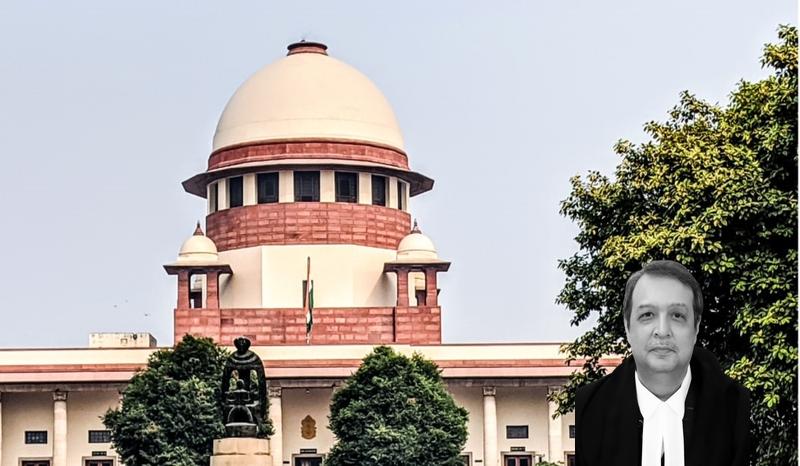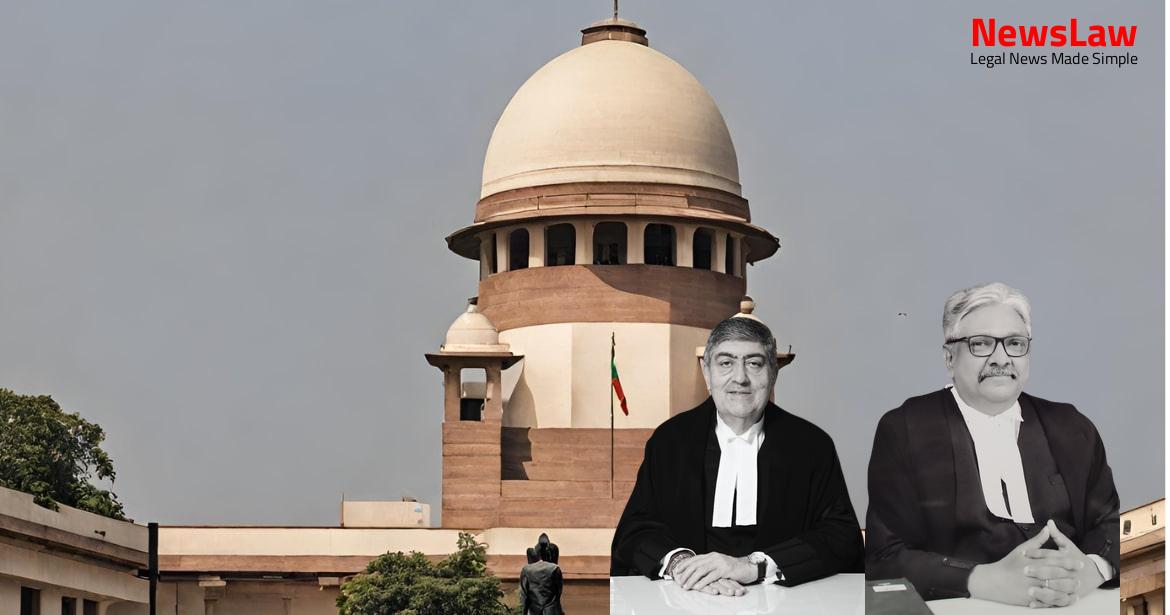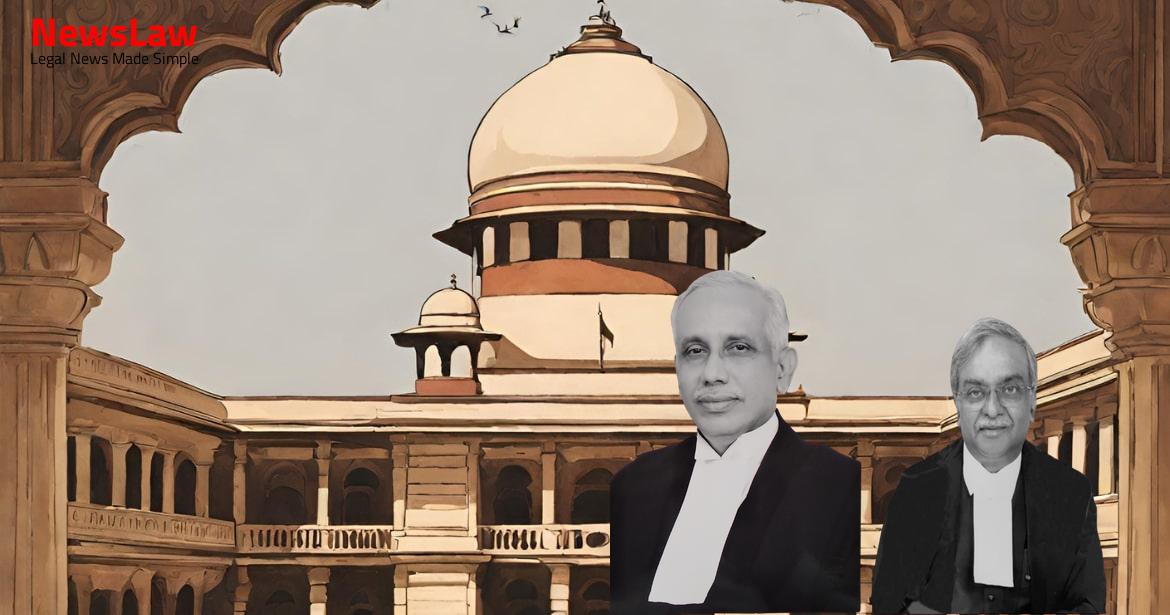1116 OF 2023 (@ SLP (Crl.)
No 7872 OF 2021) Shri Sukhbir Singh Badal…Appellant(s)
Versus Balwant Singh Khera and Ors. The facts leading to the present appeal in nutshell are as under:- 2.1 Initially, a private complaint was filed by the respondent No 1 herein – original complainant before the learned ACJM, Hoshiarpur being Complaint No 23 of 2009 for the offences under Sections 463, 465, 466, 467, 468, 471, 191, 192 of IPC, 1860 against Shri Sukhbir Singh Badal, Shri Sukhdev Singh Dhindsa, Shri Surinder Singh Shinda and Dr. It was alleged that the Constitution submitted to GEC in conformity with the Sikh Gurdwaras Act, 1925 is contrary to the one submitted to ECI as it shows that the Party is engaged in religious activities while giving an undertaking to ECI that it shall bear allegiance to the principles of secularism. That the primary revision application before the first revisional court – learned Sessions Court came to be dismissed observing that the revision is not maintainable against an interlocutory order and that no order has been passed by the learned Trial Court on the application dated 06.04.2011 of the complainant as regards not pursuing the complaint against them. The appellants herein filed revision application before the High Court seeking quashing of the orders passed by the learned Trial Court by which they were summoned as witnesses, which came to be disposed of by the High Court, setting aside the summoning of the witnesses while allowing the record to be submitted through duly authorized person. The complainant’s second application for amendment of the complaint again came to be dismissed by the learned Trial Court vide order dated 09.11.2017. Viswanathan, learned Senior Advocate appearing on behalf of the appellants has vehemently submitted that the complaint impugned before the High Court is as such nothing but an abuse of process of law and the court and therefore, the Hon’ble High Court ought to have quashed the criminal proceedings arising out of the complaint filed by the respondent No 1. 2
It is submitted that the Shiromani Akali Dal (Badal) [SAD(B)] applied for registration under the said provision by way of an application dated 14.08.1989. 4 It is submitted that the very premise of the complaint was that the undertaking given to the ECI while complying with Section 29-A of the Act, 1951 conflicted with the Constitution submitted to the Gurudwara Election Commission insofar as the Party was engaged in religious activities, while giving false declaration on secularism.
Also Read: https://newslaw.in/case-type/criminal/analysis-of-bail-granting-criteria-in-criminal-cases/
It is submitted that even while believing in a particular religion, a person / Party can be secular. Union of India and Ors., (1994) 3 SCC 1; and Commissioner, Hindu Religious Endowments, Madras Vs. 8 It is submitted that so far as the offence of cheating alleged is concerned, no offence of cheating as defined in Section 415 IPC, is made out. It is submitted that Parkash Singh Badal was not the President of the Party at the time of making the application. It is submitted that even otherwise, there was no false affidavit nor any forged document had been attached alongwith the application for registration, which was made in accordance with law.
It is submitted that the copy of Constitution was not attached and only a copy of the Memorandum adopted by the Party, in terms of Section 29-A of the Act, 1951 was attached with the application. Reliance is placed on the decision of this Court in the case of Birla Corporation Limited Vs. Reliance has been placed on the decisions of this Court in the case of Mohammed Ibrahim and Ors. and thereafter when the Hon’ble High Court has dismissed the revision application and has refused to quash the summoning order and the criminal proceedings while exercising the limited jurisdiction under Section 482 Cr.P.C., the same may not be interfered with by this Court. 5
It is submitted that the petitioners- appellants herein Shri Parkash Singh Badal had submitted a different Constitution before the Gurdwara Election Commission (GEC), which was in conformity with the Sikh Gurdwaras Act, 1925 to seek election to the Shiromani Gurdwara Prabandhak Committee (SGPC).
It is submitted that the continuing nature of fraud and the roles of appellants have also been brought out by the witnesses and through evidence collected during the inquiry collected through the pre-summoning stage before the learned Magistrate’s Court, resulting in its summoning order. It is submitted that a complaint only sets the law into motion, whereas, it is on the basis of evidence recorded in accordance with Section 200 Cr.P.C., that a Magistrate’s court is dutybound and empowered to pass a speaking order under Section 203 Cr.P.C. has not been complied with, is concerned, it is submitted that on the basis of the material / evidence collected during the course of inquiry, if the Magistrate finds that a person not named in the complaint has also committed the offence, the Magistrate is always justified in summoning that person as an accused. Shri Bhushan, learned counsel appearing on behalf of the original complainant made elaborate submissions on what can be said to be secularism and/or whether the appellants believed in secularism or not and/or the Party believes in secularism or not.
3 From the material on record, more particularly, the application for registration of the Shiromani Akali Dal (Badal) under Section 29-A of the Act, 1951, it appears that as per the requirement under Section 29-A, that a political party should deal in secularism and socialism, a Memorandum to that effect was produced. 4 Appellants are summoned to face the trial for the offences under Sections 420, 465, 466, 467, 468, 471 read with 120B IPC. —Whoever forges a document or an electronic record, purporting to be a record or proceeding of or in a Court of Justice, or a register of birth, baptism, marriage or burial, or a register kept by a public servant as such, or a certificate or document purporting to be made by a public servant in his official capacity, or an authority to institute or defend a suit, or to take any proceedings therein, or to confess judgment, or a power of attorney, shall be punished with imprisonment of either description for a term which may extend to seven years, and shall also be liable to fine. —Whoever forges a document which purports to be a valuable security or a will, or an authority to adopt a son, or which purports to give authority to any person to make or transfer any valuable security, or to receive the principal, interest or dividends thereon, or to receive or deliver any money, movable property, or valuable security, or any document purporting to be an acquittance or receipt acknowledging the payment of money, or an acquittance or receipt for the delivery of any movable property or valuable security, shall be punished with imprisonment for life, or with imprisonment of either description for a term which may extend to ten years, and shall also be liable to fine. —Whoever fraudulently or dishonestly uses as genuine any document or electronic record which he knows or has reason to believe to be a forged document or electronic record, shall be punished in the same manner as if he had forged such document or electronic record.” 5 Now, so far as the offence under Section 420 of the IPC is concerned, “whoever cheats and thereby dishonestly induces the person deceived to deliver any property to any person,……………” shall be said to have committed the offence of cheating and shall be punished.
Explanation.—A dishonest concealment of facts is a deception within the meaning of this section.” 6 Looking to the averments and allegations in the complaint, it is not appreciable at all, how the appellants are alleged to have committed the offence of cheating. Therefore, for the offence of forgery, there must be making of a false document with intent to cause damage or injury to the public or to any person.
The first is where a person dishonestly or fraudulently makes or executes a document with the intention of causing it to be believed that such document was made or executed by some other person, or by the authority of some other person, by whom or by whose authority he knows it was not made or executed. Even according to the original complainant, the Memorandum and the claim made at the time of registration of the Party that it has adopted a Memorandum accepting the secularism, the same was contrary to the Constitution of the Party produced before the Gurudwara Election Commission. 11
Case Title: SHRI SUKHBIR SINGH BADAL Vs. BALWANT SINGH KHERA (2023 INSC 466)
Case Number: Crl.A. No.-001116-001116 / 2023



